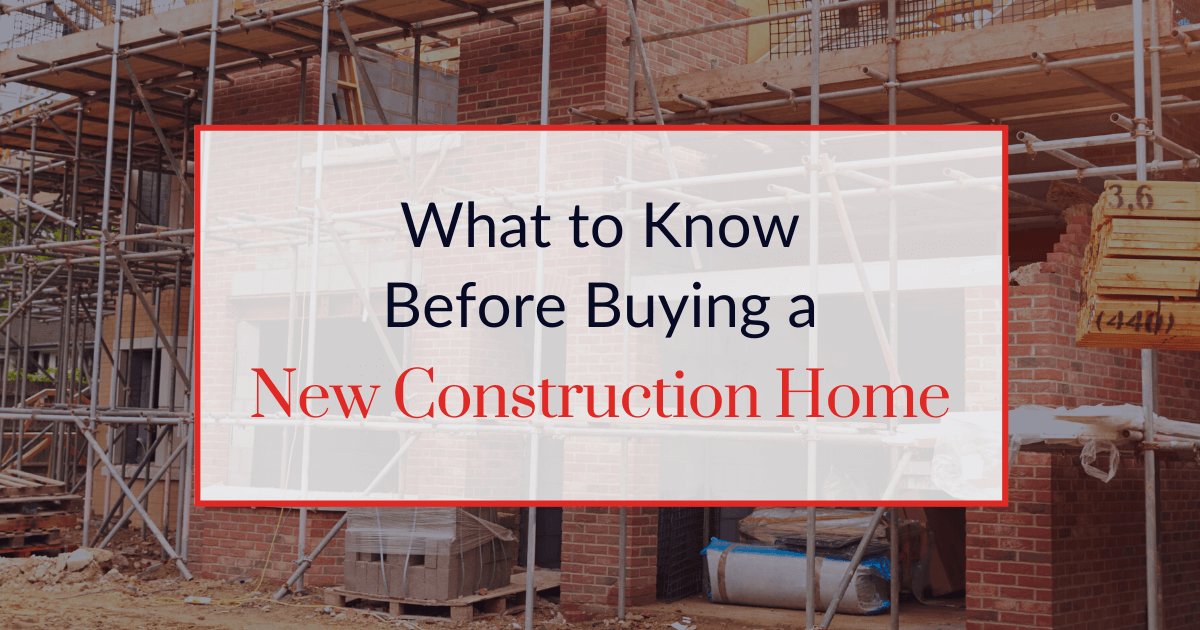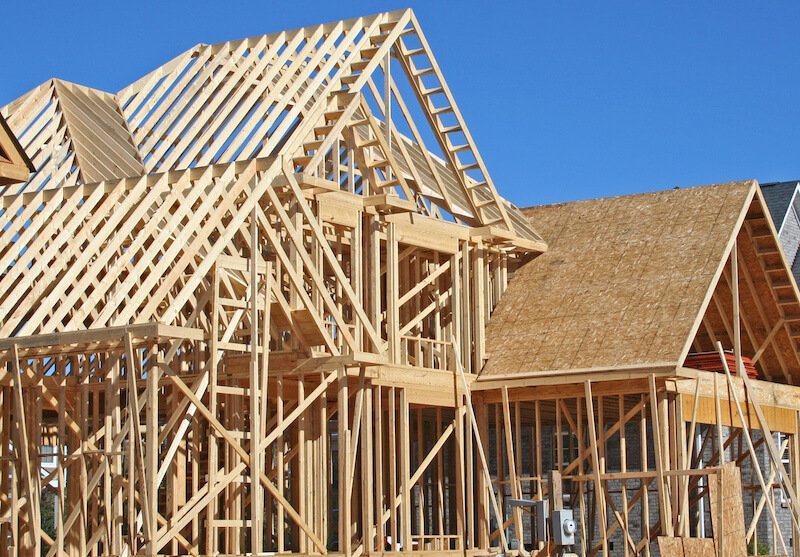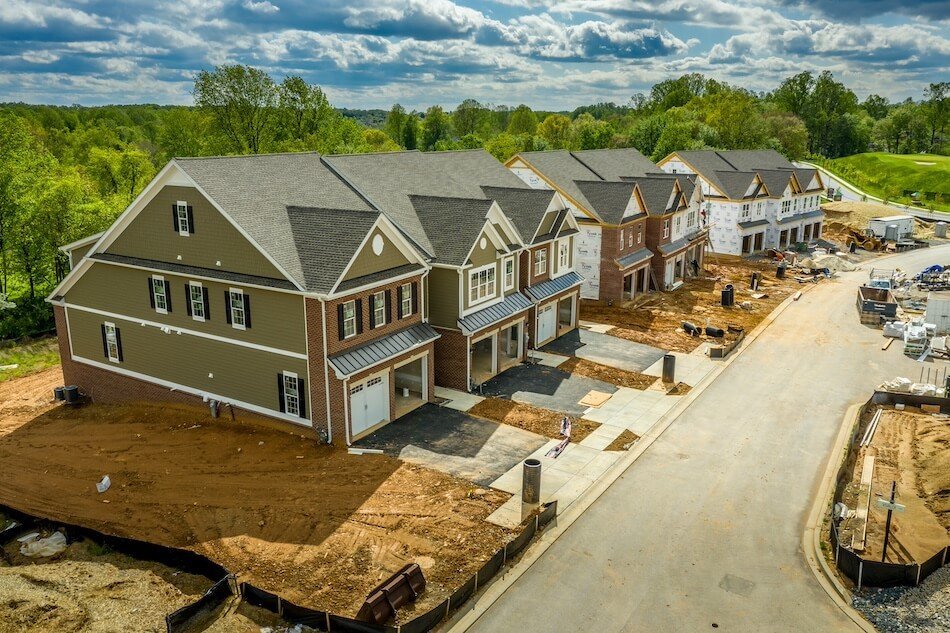Pros & Cons of New Construction Homes: What to Know Before Building
Posted by Gary Ashton on Wednesday, March 13th, 2024 at 9:40am.

Buying a home that has never been lived in before can be a dream come true for many buyers. However, everything isn't as easy as it may seem, as the process varies when buying a new construction home or custom-built home versus buying a resale property. Keep reading to learn about the pros and cons of buying new construction homes and a few tips for avoiding the potential barriers and drawbacks of the process.
What to Know Before Breaking Ground
-
New construction homes offer personalization, modern amenities, and lower maintenance costs, but come with higher initial investment, longer wait times, and limited location options.
-
Homeowners must navigate financial considerations, such as higher upfront costs and property taxes in new constructions, versus potential hidden costs of maintenance in existing homes.
-
Deciding between new construction and existing homes depends on budget constraints, personal lifestyle preferences, and location factors that affect daily convenience and long-term property value.
4 Pros of New Construction Home
The appeal of new construction homes extends well beyond the surface. At their core, they offer a personalized living experience, replete with modern amenities and the assurance of lower maintenance costs. For many home buyers, the prospect of a brand new home means embarking on a journey of creation, where every corner and crevice resonates with their unique touch.
Customizing a model home or having a ground-up custom-built home has many benefits. The fact that no one has lived there before minimizes the chances of shoddy repairs, unpermitted work, unsightly patches on walls, and worn-out appliances. Another bonus is that buyers know what they'll pay consistently for mortgage payments. Check out these perks of new construction homes more in-depth.
Personalized Design, Fixtures & Layout
A full custom-built home gives buyers almost complete control concerning everything installed in their home from floor to ceiling and the exteriors. Architects and contractors design these homes to meet the specifications the buyer wants from the start. This is where investors can be bold and create a home full of luxury or modern features to ease everyday life and enhance comfort.
However, semi-custom homes may only have certain features that can be altered due to builder restrictions or with the idea that buyers could back out. Their goal is to have fluidity in the neighborhood by building homes that are desirable to a wide audience should the sale fall through.
Typically, buyers have options to remove non-load-bearing walls to create a more open living space. They can have walls added to establish separate bedrooms or office space, or have kitchens expanded or upgraded with smart appliances or built-in shelving for storage. Other upgrades and customization options for a new home construction include:
- Light fixtures
- Door handles
- Cabinetry
- Wood, tile or carpet flooring
- Window upgrades & specialty treatments
- Interior or exterior doors
- Appliances
- Countertops, cabinet handles and pulls
The Home is Brand New
Most contracts for new homes include set standards that ensure quality and also come with a warranty to cover any premature system or appliance failures after moving in. While it's uncommon for reputable builders to make errors, it can happen. However, they are generally amenable to making changes and repairs should a problem arise.
A brand new home means that no one else has lived there, so the property looks and feels fresh. There will be no signs of failed repairs of costly systems or indications of deferred maintenance by previous owners. Some owners may have bypassed professionals for expensive repairs to save on costs, leaving behind undocumented or unpermitted work that poses a hazard.
Another benefit of a brand-new abode is that it often comes with smart appliances and systems that add convenience and help curb utility costs compared to older models. One more perk is that some resale homes may have lead paint or asbestos, which are harmful to pets and people, but new homes are clean.
Modern Amenities and Technology
Modern amenities and technology are integral to new construction, demonstrating progress in this field. New construction homes are often equipped with:
-
Smart home systems, offering homeowners the luxury of managing their abode with the mere touch of a button
-
Energy-efficient features such as programmable thermostats and lighting systems, spearheading cost savings and environmental stewardship
-
Safety features that comply with the latest building codes and potentially lower insurance premiums
These technological advancements are not only a nod to convenience but also a commitment to safety and sustainability.
Lower Maintenance and Repair Costs
The promise of lower maintenance and repair costs adds to the financial merits of new construction homes, allowing homeowners to save money. Newly constructed homes tend to use new materials and the absence of age-related wear and tear means that the homeowner can bask in the reassurance that major repairs are likely a distant concern.
Newly constructed homes often arrive as a complete package, a turnkey solution that spares the occupant the immediate need for any significant upkeep. Furthermore, the safeguard of builder warranties serves as a bulwark against unforeseen expenses, allowing the homeowner to allocate funds to other ventures or savings.
5 Cons of New Construction Homes

While the appeal of a new home is vast, there are a few things buyers need to be aware of before diving into the process. Here, we'll cover considerations when buying model homes, what to expect during the construction process, timeframes for the build, and negotiation tactics.
Model Homes Aren't the Advertised Homes
When touring a model home in a subdivision or master-planned community offering property, buyers should keep in mind that the homes they are seeing tend to have many of the available upgrades in place. Such upgrades are not included in the advertised base price for homes in the neighborhood and will cost extra when the contract is signed.
Be sure to talk with the sales agent during the tour about which features are standard, which are upgrades, and the cost difference between them. Those luxury floors, high-end appliances, window treatments, and high-end countertops or bath installations may be able to become part of the negotiations, as long as buyers walk in ready to strike a deal.
Negotiating New Construction is Different from Negotiating Resale Homes
The builders and agents that offer new construction homes in planned communities are very interested in keeping home values up. This makes them less likely to offer lower pricing on these homes, while those offering resale properties are often open to negotiation. Knowing this going in for the tour lets prospective buyers start eyeing upgrades and options that agents may be willing to include in the sale price, which appeases buyers while still keeping home and property values on par.
Building a New Home Takes Time
Building a home from the ground up, investing in one with several customized options, or making structural changes to a pre-fabricated floor plan model can take time. When discussing the timeline with the builder and contractor, ask them for an estimated completion date. This should include potential delays due to weather, material shortages, or any issues in obtaining construction permits—checking their transparency about the timeline and delays is one way to find a home builder.
While most new construction home builds can take months to finish, it's not unusual for complex builds or those in diverse climates or rural locations to take up to two years before being ready to move in. Also factor in additional time for such incidences, and have a plan for where to live until the home is built as well as a plan to sell a current residence, if applicable.
There are many pros and cons of new construction homes to consider, but to get your dream home, it's worth putting in the time and research.
Higher Initial Investment
Despite its potential, a new construction home requires a substantial initial financial commitment. The median sale price of a newly built home can be a steep climb compared to its pre-owned counterpart. And it doesn’t end with the purchase price; there are additional expenses lurking beneath the surface, such as landscaping or the finishing of a basement, which can swiftly inflate the total cost. These financial nuances necessitate a deep dive into one’s finances, as the allure of a brand new home must be balanced against the reality of higher property taxes and the potential for a buyer’s market where negotiation is less likely.
Limited Location Options
New construction homes are often located in new construction communities on the outskirts of urban areas, trading the familiarity of established neighborhoods for the potential of a new community. This can mean a dearth of essential amenities and social infrastructure, such as schools and healthcare, at least in the initial phases of the new development. Residents might find themselves reliant on personal transportation, with public transport links few and far between, and the infrastructure required to support a burgeoning community still under construction.
The alignment of housing development with existing infrastructure is a puzzle that requires careful planning and foresight.
What's the Process For Buying a New Construction Home?
Buying a pre-construction home may seem like uncharted territory when compared to buying a prebuilt home. When do you pay for a new construction home—upfront or after the work is done? Is making an offer on a new construction home different from making an offer on a pre-existing home? Do you still need to use a real estate agent when buying a pre-construction home? Here are a few answers to shed some light on the buying process for all types of new construction homes.
Making an offer on a new construction home: The offer letter will almost certainly take into account different considerations than most homebuyers are used to. Assuming that the home is a production home or a semi-custom home—that is, the buyer is making an offer on a new build that's already constructed or is in progress with a predefined end goal—the timeline will depend on the build being completed. The proposed closing date is generally more vulnerable to delays. In addition, the party being negotiated with will be the builder, not a previous owner. (With fully custom homes, the buyer essentially reaches out to the builder with a job offer.)
It may be tempting to make an offer without the home inspection contingency, but it's still not wise. Despite everything being new, builders can still make mistakes, and the inspection report gives you a tangible record of the home's condition.
Using a real estate agent to buy new construction: Some new construction developments outright require that interested parties arrive with their agent in tow! It's a good idea to ask around to find an agent or team that has experience with new construction developments specifically.
This question is murkier when you're building a fully custom home on a lot you already own. However, it can still be a good idea to hire a real estate agent when building a home. An agent will be familiar with the paperwork involved, can assist you in negotiating with the builder, and know the potential resale value of designs and upgrades for the area.
Buying a lot and building a house: In this case, buyers will want to search for a real estate agent who has experience in buying land, particularly if the chosen lot is undeveloped land. Raw land has an extra layer of legalities and potential complications that not all buyers or agents may be aware of. Building details can then be discussed with a local builder.
Pros and cons of building a house: New construction homes come in several states of completion: production homes, semi-custom homes, and fully custom homes. Production homes get all the benefits of newness and have no wait time, but they also have no customization since they're fully complete when the buyer enters the equation. Semi-custom homes can be customized to a degree and have a corresponding degree of wait time, particularly if they're bought pre-construction. Fully custom homes built from the ground up take the longest—sometimes years—since the builder isn't going by a neighborhood template but by the buyer's and architect's custom design. The best choice for the type of new construction depends on what the buyer prioritizes.
Paying timeline for a new construction home: Several scenarios are possible here, but for the most part, buyers only pay for a new construction home after the home has been completed. When the builder finances construction, the down payment for a new construction home is due at closing, just as with resale homes. If the buyer is taking out a new construction loan to finance construction, the lender will pay out the loan in stages as the builder reaches construction milestones. Usually, these loans have higher down payment requirements (20–30%) and a higher interest rate than a conventional mortgage. When the build is complete, a mortgage then pays off the construction loan.
Earnest money, on the other hand, is due when you sign the purchase agreement and is applied toward the down payment, also as with resale homes. However, it's also called the builder's deposit when buying new construction, and it's usually a higher amount than earnest money on a pre-existing home. A general rule of thumb would be to expect to pay 5–10% of the home's value and 25–50% of any upgrades' value upfront as the builder's deposit.
New Construction Homes VS Existing Homes

Choosing between a new construction home and an existing one is a complex decision that goes beyond personal preference to include considerations of budget, lifestyle, and location. Each option offers distinct advantages and challenges, and weighing these aspects carefully can lead to a choice that resonates with the buyer’s long-term goals and daily life. When it comes to buying a new construction, understanding the unique benefits and potential challenges is essential for making an informed decision.
Budget Considerations
In terms of budget, new constructions and pre-owned homes often balance differently on the scales. The allure of new construction homes, with their higher median purchase prices, must be balanced against the anticipated savings in maintenance and the potential for property appreciation in a pre owned home.
On the flip side, existing homes typically entail lower upfront costs but might come with the hidden expenses of upkeep and renovations. It’s imperative for buyers to factor in the long-term financial trajectory and not just the initial price tag.
Lifestyle and Personal Preferences
The home-buying decision is fundamentally driven by lifestyle and personal preferences. New constructions allure with the prospect of a home molded to the buyer’s vision, offering modernity and a blank slate for personal expression. However, the stress associated with making numerous design choices and the uncertainty of the final outcome can be daunting for some.
In contrast, an existing home provides the assurance of a tangible, ready-to-inhabit space, often with a proven track record of durability and charm in existing homes.
Location and Community Factors
Location and community factors, which influence everything from daily convenience to long-term property value, are crucial in the home-buying process. New developments may offer the excitement of growth and modern amenities, but they can also come with the uncertainties of an evolving community.
Existing homes, nestled within established neighborhoods, present the comfort of familiarity and the reliability of established local services. Buyers must consider these dynamics and how they align with their priorities, whether it’s the potential for appreciation in a new neighborhood or the stability of a well-rooted community.
Buy New and Create a Dream Home
Having and decorating a new construction home allows buyers to realize their dreams with all the touches and finishes they've always wanted to wake up to each day. Going in prepared for the process will ease stress and help buyers get the home they truly desire with fewer hindrances and perhaps even at less expense.
Frequently Asked Questions
What are the advantages of owning a newly built home?
Owning a newly built home offers complete customization, energy efficiency, homebuilder warranties, lower operating and maintenance costs, amenities and community, smart technology, and higher resale value. Additionally, new homes rarely need repairs or renovations, have lower maintenance costs, and come with warranties and incentives for financing.
What are the cons of building a house?
Building a new home can be a time-consuming and expensive process with potential for unexpected costs and delays. Therefore, it's important to carefully weigh the pros and cons before making a decision.
Are new homes built better than older homes?
Newer homes are generally more comfortable, energy-efficient, and safer, but there are well-constructed older homes that have stood the test of time. Construction quality varies from home to home, regardless of its age.
Do new construction homes have good resale value?
Yes, new construction homes generally have good resale value due to modern amenities and the ability to skip renovations, making them a worthwhile investment.
What are the main financial benefits of purchasing a new construction home?
Purchasing a new construction home can lead to financial benefits such as energy efficiency savings, lower maintenance and repair costs, and protection of builder warranties against defects. These factors can contribute to long-term financial savings and peace of mind.

Gary Ashton
The Ashton Real Estate Group of RE/MAX Advantage
The #1 RE/MAX team in the World!
